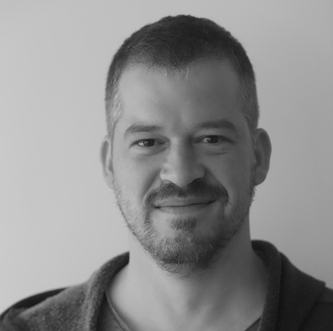Workshop Abstract
Modern software engineering is getting increasingly complicated. Especially in the HPC field, we are dealing with cutting edge infrastructure and a novel problem with unprecedented scale. The ability to monitor and analyze the performance of such applications and infrastructure is imperative for the future of improvement, design, and maintenance. In the current era, the writing and maintenance of these applications have ceased to be the job solely of computer scientists and has grown to encompass a wide variety of experts in mathematics, science, and other engineering disciplines. The fact that many developers from these disciplines have not received a formal education in computer science and rely increasingly on the tools created by computer scientists to analyze and optimize their code shows that there's a need for a forum to work together.
Workshop Overview
The Workshop on Performance EngineeRing, Modelling, Analysis, and VisualizatiOn STrategy (PERMAVOST) goal is to bridge tools developers and end users of performance analysis tools. It is a full day workshop with a keynote in conjunction with HPDC 2022. We are hoping that the stakeholders, which are application developers, domain scientists, analyst, and tools developers can collaborate and build a bridge to fill in the gaps in various topics such as:
- Key metrics, patterns, and performance pitfalls including the strategies to recognize and use the performance information to improve the applications.
- Facing challenges that are coming from the new computing architecture, programming paradigm, novel scientific problems, and various scale of data that needs to be processed effectively.
- Research and needs to use modern principles of usability design integrated inside performance analysis tools to better aid its users.
- Analysis and methodology that can be utilized and understood for users with various HPC knowledge spectrum.
Topics of interest
Our workshop with encompass the following topics of interest:
- Performance analysis and modelling on the real world applications.
- Data visualization in high level performance analysis.
- Inefficiencies in programming patterns or computing architecture.
- Patterns, anomaly detection, and performance characterization in HPC applications.
- Performance engineering strategies and use cases.
- Analyzing application performance in Cloud environment and other ubiquitous technology.
- Performance management in the container and virtualisation environment.
- Machine learning aided performance analysis.
- Energy Management in Performance Analysis and Engineering.
Call for Paper
All submitted papers should be formatted using the ACM Master Template with sigconf format (please be sure to use the current version). The necessary document can be found here
General Instructions
- Full 6-8 page papers (including all text, figures and references)
- Submissions must be in English
- Submissions must be in PDF format
- Only web-based submissions are allowed. Paper needs to be submitted via PERMAVOST 2022 EasyChair
- We use single-blind reviewing process so you can keep authors' names, publications, etc.
- Papers will get 3 reviews
- Accepted papers will be published in the workshop proceeding as part of the ACM Digital Library
Program
Keynote Speech:
 |
Frederic Suter Oak Ridge National Laboratory |
"Performance Evaluation Through Simulation with SimGrid"
In most scientific domains, results are now obtained thanks to computational science that heavily relies on numerical simulations. This in turn leads to a tremendous increase in size and complexity of the underlying computing infrastructures. The performance assessment of such distributed systems and the applications they run is then a complex task for which various approaches can be considered. This talk will give a general overview of these approaches for the performance assessment of distributed systems and applications: experimentation, emulation, and simulation. It will specifically focus on the main features and strengths of the SimGrid toolkit. SimGrid is a 20+ year old research project whose scope has broaden over the years from the simulation of computing grids to P2P systems, clouds, and HPC. It will introduce the two main programming APIs, the underlying (in)validated models, and present some of the tools based on SimGrid that are currently available.
Frederic Suter is a Senior Research Scientist in the Workflow Systems Group at Oak Ridge National Laboratory since February 2022. Before thta, he has been a CNRS researcher at the IN2P3 Computing Center in Lyon, France, for thirteen years where he led the research team of the center. His research interests include scheduling, scientific workflows, data science and platform and application simulation. He co-authored more than 50 publications. He obtained his Ph.D. from the Ecole Normale Supérieure de Lyon, France, in 2002 and his Habilitation to supervise research From the Ecole Normale Supérieure de Lyon in 2014. He is also one of the main developers of the SimGrid project.
Invited Speech:
 |
Katherine Isaacs University of Arizona |
"Integrating Visualization (and Visualization Experts) with Performance Analysis"
Identifying and understanding poor performance is an increasingly difficult task due to the growing complexity and scale of target applications and systems. Visualization is an important tool for exploratory and comprehension-centered goals, leading to development of visualizations and visual tools from both the performance analysis and visualization communities. However, there are several obstacles to wide-spread adoption of these visual tools and techniques, such as scale and ease-of-use. Furthermore, the challenge of visualizing such large and complex data often takes precedence over the other challenges that must be solved to get these tools into the hands of users. Addressing these issues requires making trade-offs which in turn require a firm understanding of performance analysts’ needs and workflows. Through several projects in performance visualization, I discuss observed barriers to designing and deploying performance visualization solutions as well as the perspective of visualization-focused experts in working in the performance analysis space. I then propose directions focusing on these gaps between the visual design and integration into performance analysis workflows.
Kate Isaacs is an assistant professor at the University of Arizona. Her interests include data visualization and high performance computing. She focuses on visualization challenges in complex exploratory analysis scenarios such as those of active research teams. These challenges include representational and interactive scalability concerns for networks and timelines, integrating interactive visualizations in scripting workflows, and improving visualization methodologies for such projects. Kate has collaborated with researchers in high performance computing, distributed computing, data science, program analysis, optimization, and environmental planning. Her work is supported by the NSF and DOE, including an NSF CRII award in 2017, an NSF CAREER award in 2019, and a DOE Early Career Research Program award in 2021.
Paper Presentation:
- An Overhead Analysis of MPI Profiling and Tracing Tools - Sacha Hunold (TU Wien), Jordy I. Ajanohoun (TU Wien), Ioannis Vardas (TU Wien), Jesper Larsson Traeff (TU Wien)
- Server-Side Workload Identification for HPC I/O Requests - Lu Pang (Temple University), Krishna Kant (Temple University)
*Each paper presentation will be followed by Q&A session
Discussion Panel:
 |
Kristopher Keipert NVIDIA, USA |
 |
Rafael Ferreira da Silva Oak Ridge National Laboratory, USA |
 |
Suraj Kesavan University of California, Davis, USA |
 |
Thirtak Patel Rice University, USA |
"Domain Scientists vs. Performance Analysis Tools: Advancing in HPC"
In this panel, a team of four experts in performance analysis, parallel computing, quantum computing, and distributed systems discuss how different scientific computing fields are benefiting from performance analysis tools. The panel will discuss challenges and limitations in today's available tools from the perspective of a tools developer, domain scientist, and solutions architect. An emphasis will be placed on evaluating the performance and visualizing experiments in rising fields in Computer Science such as Machine Learning and Quantum Computing in HPC infrastructures. The panel is in the format of questions and answers sessions given by the moderator combined with interactive communication with the audience. We encourage participants to join our interactive panel discussion
Workshop Video:
Workshop Chair
- Radita Liem - RWTH Aachen University
- Connor Scully-Allison - University of Arizona
- Ana Veroneze Solórzano - Northeastern University
Program committee
- Brian J. N. Wylie - Juelich Supercomputing Center
- Christian Terboven - RWTH Aachen University
- Jay Lofstead - Sandia National Lab
- Kate Isaacs - University of Arizona
- Lenny Guo - Pacific Northwest National Laboratory
- Lucas Mello Schnorr - Federal University of Rio Grande do Sul
- Kate Isaacs - University of Arizona
- Marc-André Hermanns - RWTH Aachen University
- Matthias Maiterth - Technical University of Munich
- Rui Wu - East Carolina University
- Sarah Neuwirth - Goethe University Frankfurt
- Vinicius Garcia Pinto - Federal University of Rio Grande do Sul
Contact
If you have any problems or questions, please contact us via e-mail at: liem@itc.rwth-aachen.de